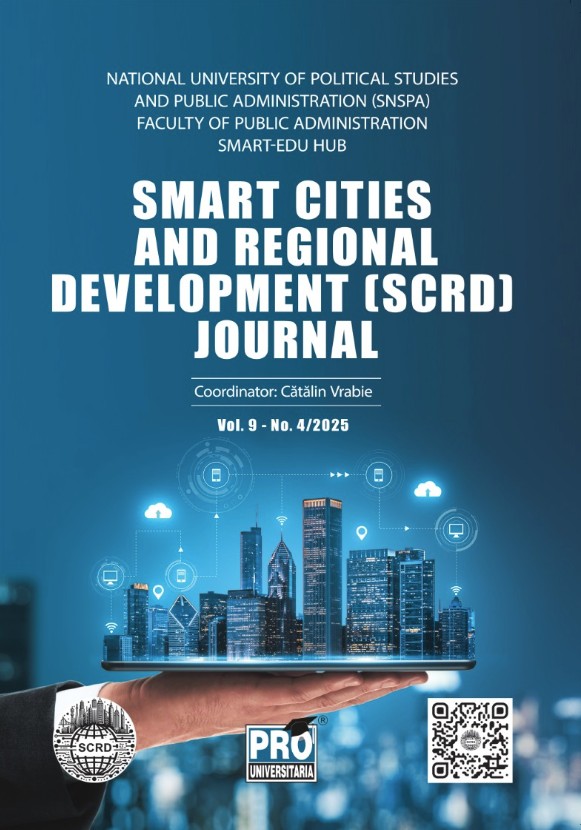The smart city paradigm in the 21st century: Pathways and pitfalls
DOI:
https://doi.org/10.25019/a3etcc19Keywords:
urban digitalization, smart governance, innovation ecosystems, ICT infrastructure, citizen participationAbstract
The paper explores the smart city paradigm as a transformative framework for 21st-century urban governance, focusing on the integration of advanced ICT tools to promote efficiency, inclusivity, and sustainability. Objectives: The study aims to examine global trends in smart urban development and assess their applicability within the Armenian context. Prior work: Building on research from urban innovation studies and digital governance practices in cities like Singapore, Copenhagen, and Tallinn—as well as recent analyses published in SCRD—it highlights both the benefits and limitations of current models. Approach: A qualitative methodology is used, combining comparative analysis, policy document review, and secondary statistical data. Results: Findings reveal significant disparities between global frontrunners and Armenia in readiness and infrastructure, yet also underscore Armenia’s latent capacity through skilled workforce and diaspora engagement. Implications: This study provides practical insights for local policymakers, urban planners, and ICT professionals seeking to design adaptive, scalable, and citizen-centered smart city strategies. Value: The article contributes an original roadmap—"Smart Yerevan Model"—with algorithmic planning, ROI simulation, and risk evaluation tools tailored to emerging economies. It offers both theoretical insight and actionable strategies to transition towards a more resilient urban future.
Downloads
Published
Issue
Section
License
Copyright (c) 2025 Khoren MKHITARYAN, Anna SANAMYAN,, Mariam MNATSAKANYAN, Erika KIRAKOSYAN

This work is licensed under a Creative Commons Attribution-NonCommercial-NoDerivatives 4.0 International License.


